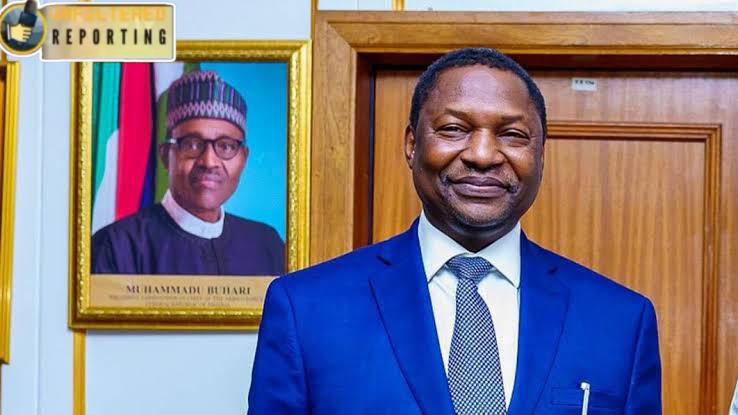Malami Defends Buhari’s Anti-Corruption Legacy, Cites Thousands of Convictions, Over $2 Billion Recovered

Former Attorney-General of the Federation and Minister of Justice, Abubakar Malami (SAN), has stated that corruption did not thrive under the administration of late President Muhammadu Buhari.
He made this known in a recent statement, where he defended the anti-corruption legacy of the Buhari government, citing thousands of convictions and multi-billion-dollar asset recoveries. Malami disclosed that over 3,000 convictions were secured in 2022 alone, describing the figure as a clear indication of the administration’s success in tackling corruption. He argued that no government in Nigeria’s recent history had matched Buhari’s record in terms of volume and scope of prosecutions. He further revealed that the Buhari-led government recovered assets exceeding $2 billion during its tenure. According to him, these included foreign currencies such as £6.3 million, €5.5 million, and over N390 million in naira equivalent, as well as numerous forfeited properties valued at billions of naira within the country. “In eight years, we recorded unprecedented success in asset recovery and corruption prosecutions. The results are measurable, and they show that corruption did not thrive under Buhari’s watch,” Malami said. He highlighted that the government’s efforts were strengthened through institutional reforms, international partnerships, and the passage of legislation such as the Proceeds of Crime Act. He added that the administration built an efficient framework for asset recovery, which allowed Nigeria to collaborate with foreign governments and retrieve stolen funds held abroad. However, Malami’s statement has drawn criticism from some civil society organizations and political observers who argue that while figures may be impressive on paper, the fight against corruption under Buhari was marred by allegations of selectivity and political interference. Some critics noted that high-profile figures within the ruling party were either shielded from prosecution or benefited from questionable plea bargains. They also pointed to Nigeria’s consistently poor rankings on Transparency International’s Corruption Perceptions Index throughout the Buhari years as evidence that systemic corruption remained a significant issue. Malami has repeatedly denied allegations that he interfered in sensitive cases or returned recovered loot to politically connected individuals. He insisted that his office acted strictly within the bounds of the law and in the interest of justice. The former minister’s comments come days after the passing of President Muhammadu Buhari, who died on July 13, 2025, in London. His remains were interred on July 15 in his hometown of Daura, Katsina State. As tributes continue to pour in, debates surrounding Buhari’s legacy—particularly his record on anti-corruption—have intensified. While supporters like Malami maintain that the former president made bold strides in cleaning up the system, critics argue that the structural issues and lack of institutional independence during his tenure ultimately weakened the fight.








